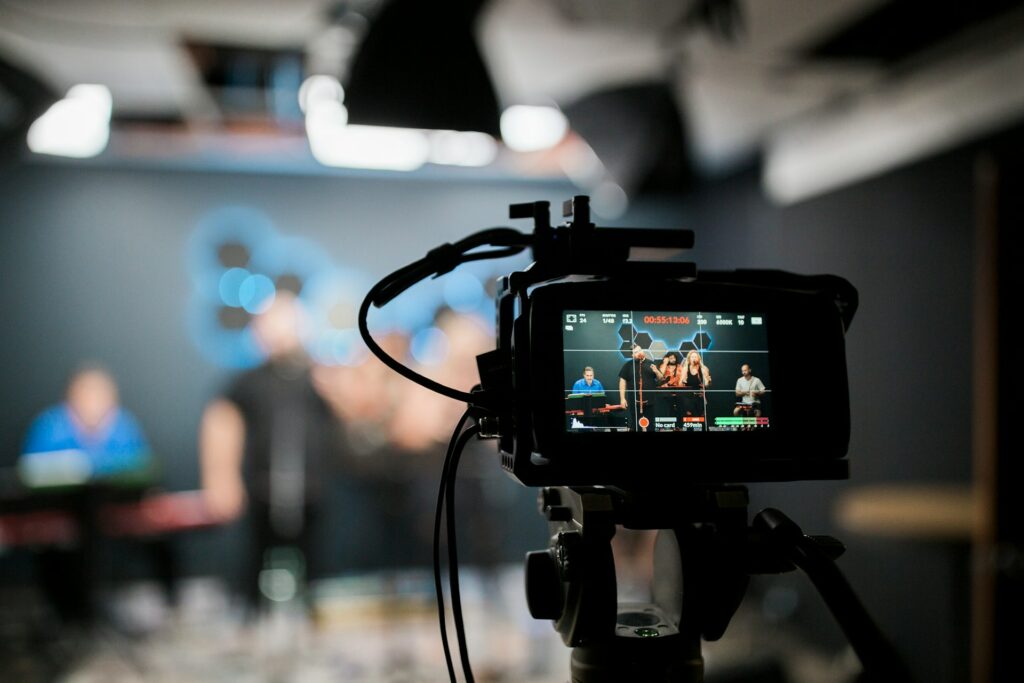The Platforms for Streaming Create content using artificial intelligence to reduce production costs.

The Platforms for Streaming Create content using artificial intelligence to reduce production costs.
Over the course of the last ten years, the streaming business has been subjected to a significant amount of change, and now artificial intelligence (AI) is at the intersection of the next significant upheaval. The biggest streaming platforms are turning to artificial intelligence-generated content in order to cut production costs and satisfy the desire of people all over the world. This is due to the fact that there is an increasing amount of competition, rising license prices, and expectations for continual new content. The manner in which we take in entertainment is being reshaped as a result of this transition, which has generated both enthusiasm and criticism.
Pressures on Streaming Platforms from a Financial Perspective
The production of documentaries, films, and television series of a high quality may cost millions of dollars every project. A significant amount of money is also spent by platforms in order to acquire license rights from conventional studios. As the number of subscribers in some areas continues to decrease and the expenses of operations continue to rise, businesses are looking for novel approaches to ensure that they continue to generate profits. Content that is created by artificial intelligence has emerged as a viable alternative that is capable of lowering expenses while also generating constant engagement.
Using Artificial Intelligence in the Production of Content
There is more to artificial intelligence than simply producing screenplays; it is engaged in practically every stage of the creative pipeline:
- Natural language models have the ability to create scripts that are based on certain topics, genres, or audience preferences. Scriptwriting and storytelling are two examples of this.
- Generation of Voice: Voice actors powered by artificial intelligence may narrate programs or even duplicate the sounds of celebrities that have been lawfully licensed by studios.
- The use of generative artificial intelligence systems in visual production allows for the creation of realistic backdrops, characters, or animations without the need for costly sets or big crews.
- When it comes to editing and post-production, automated systems are able to drastically trim sequences, add effects, and improve graphics far more quickly than conventional editing teams.
- This technology makes it possible for platforms to rapidly generate specialized programs or content that is tailored to a certain region, which was previously financially impossible.
Examples of Entertainment Produced by Artificial Intelligence
Discussion programs, animated shorts, and documentaries that are created by artificial intelligence are already being made available on smaller streaming sites as trials. When it comes to producing translated versions of films, several platforms are using artificial intelligence to do things like automatically dubbing speech or even modifying cultural allusions for various locations.
An example of this would be how an artificial intelligence system may take a single screenplay and create versions that are customized to Western, Asian, or Middle Eastern audiences at a low additional expense. Because of this localization, platforms have an advantage in international marketplaces.
Advantages for Companies That Stream Content
- Reducing the number of production teams, sets, and lengthy shooting schedules is one way to save costs.
- AI has the ability to construct several projects in a fraction of the time, which results in faster output.
- The ability of platforms to develop one-of-a-kind narratives or conclusions based on the preferences of viewers is referred to as content personalization.
- Easier adaptation for a variety of languages and cultures may be achieved via global reach.
Concerns Regarding Content Produced by Artificial Intelligence
Even while technological advancements are occurring at a fast pace, not everyone is eager to celebrate the trend. Some critics contend that:
- Writers, performers, and production personnel face the threat of being replaced by computers, which might result in job losses.
- The tales that are produced by artificial intelligence could not have the same level of depth, originality, or emotional impact as the art that is made by humans.
- Replicating voices or likenesses poses ethical considerations of permission, authenticity, and the possibility of making inappropriate use of the information.
- When it comes to cultural homogenization, an excessive dependence on AI templates may result in output that is formulaic and repetitive.
Despite the fact that these arguments are a reflection of larger worries about automation across sectors, the cultural stakes are especially high in the entertainment industry, which places a significant emphasis on creativity and the human experience.
Feedback from the Audience
Conflicting emotions have been voiced by viewers. There are many who are interested in artificial intelligence-generated material and like the novelty of it, while others are concerned that it can weaken the emotional connection they have with conventional narrative. Despite the fact that viewers love artificial intelligence for specific genres, such as animation or casual programs, they are more suspicious about AI-driven drama or character-focused storylines, according to the results of certain early studies.
What the Future Holds for Artificial Intelligence in Streaming
It is quite improbable that artificial intelligence will ever entirely replace human creativity. Rather, it is possible that a hybrid paradigm may evolve, in which artificial intelligence will aid with cost-saving and efficiency, while humans will concentrate on high-level creativity, imaginative storytelling, and innovation. It is possible that platforms may continue to invest in high-budget productions that are led by human creators while also using artificial intelligence for short-form content, experimental initiatives, or other background chores.
There has been a significant shift in the entertainment industry as a result of the incorporation of artificial intelligence material into streaming platforms. In spite of the fact that it promises to be efficient and more cost-effective, it also presents important problems of art, labor, and authenticity. It is imperative that the industry find a way to strike a balance between the efficiency of technology and the irreplaceable worth of human creativity as artificial intelligence continues to advance.




